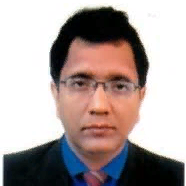
Uzzal K. Acharjee
Work place: Jagannath University, Dhaka-1100, Bangladesh
E-mail:
Website:
Research Interests: Social Information Systems, Data Mining, Neural Networks, Computational Learning Theory, Artificial Intelligence
Biography
Dr. Uzzal K. Acharjee obtained his Ph.D degree in Applied Physics, Electronics & Communication Engineering from University of Dhaka, Bangladesh in 2014. He received the B.Sc. and M.Sc. degree in Applied Physics, Electronics and Computer Science from the University of Dhaka, Bangladesh, in the year 1999 and 2000, respectively. He is serving as Professor in the Department of Computer Science and Engineering, Jagannath University, Bangladesh. His research interests include the area of Artificial Intelligence, Neural Networks, Deep Learning, Data Mining, Wireless Networks, Social Networks etc.
Author Articles
Cyber Bullying Detection and Classification using Multinomial Naïve Bayes and Fuzzy Logic
By Arnisha Akhter Uzzal K. Acharjee Md Masbaul A. Polash
DOI: https://doi.org/10.5815/ijmsc.2019.04.01, Pub. Date: 8 Nov. 2019
The advent of different social networking sites has enabled people to easily connect all over the world and share their interests. However, Social Networking Sites are providing opportunities for cyber bullying activities that poses significant threat to physical and mental health of the victims. Social media platforms like Facebook, Twitter, Instagram etc. are vulnerable to cyber bullying and incidents like these are very common now-a-days. A large number of victims may be saved from the impacts of cyber bullying if it can be detected and the criminals are identified. In this work, a machine learning based approach is proposed to detect cyber bullying activities from social network data. Multinomial Naïve Bayes classifier is used to classify the type of bullying. With training, the algorithm classifies cyber bullying as- Shaming, Sexual harassment and Racism. Experimental results show that the accuracy of the classifier for considered data set is 88.76%. Fuzzy rule sets are designed as well to specify the strength of different types of bullying.
[...] Read more.Other Articles
Subscribe to receive issue release notifications and newsletters from MECS Press journals